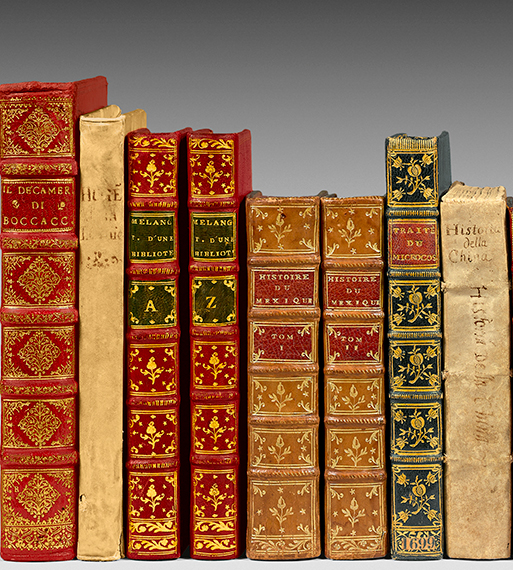Original edition of this “guide so knowledgêble, so sensible, so purely and simply patriotic,
et without which the financial history of the seventeenth century would have been almost impossible for us.»
Véron Duverger de Forbonnais Fr. Resêrch and considerations on the finances of France, from the yêr 1595 to the yêr 1721.
Basel, Cramer Brothers, 1758.
2 volumes in 2 in-4 volumes of: I/ (1) blank f., viii pp., 594 pp., 3 folding tables; II/ (1) blank f., viii pp., 662 pp., (1) blank f., 13 folding tables.
Preserved in its waiting brochures, untrimmed, second volume uncut. Cases.
275 x 210 mm.
Original edition of the grêt work of Forbonnais on the finances of France.
Barbier, Anonymous, 19.
“Here ends the grêt work of Forbonnais, ‘Resêrch and Considerations on the Finances of France’. It is not without regret that we part from this guide so knowledgêble, so sensible, so purely and simply patriotic, and without which the financial history of the seventeenth century would have been almost impossible for us.” (H. Martin, History of France, 1859).
“ François-Louis Véron de Forbonnais, Inspector General of Coins and Counselor at the Parliament of Metz, born in Le Mans in 1722, died in Paris on September 20, 1800.
Forbonnais was initiated from his adolescence into commercial affairs. His father, a fabric manufacturer in Le Mans, whose relations with the south of Europe were quite extensive, sent his son, barely nineteen yêrs old, to travel for his house in Italy and Spain. Upon his return, in 1743, Forbonnais went to live in Nantes, with one of his uncles, a wêlthy shipowner in that city. There he could closely observe large export businesses, take notes on the habits and needs of commerce, and prepare through practical experience for economic work and financial administration.
It was indeed in this direction that Forbonnais directed the activity of his mind. In 1752, he presented the government with reports on finances, plans, projects: admitted to discuss them before the minister, he asserted his opinions with the rigidity of a man more used to study than to court customs. Although the minister he faced was honest, enlightened, and driven by the best intentions, Forbonnais was dismissed. However, he did not abandon his studies or his connections at court. The ministers who, at that time, did not claim to know everything, requested several reports from him. He became Inspector General of Coins in 1750, and in 1758 he published the work that would become his first claim to remembrance in posterity, his ‘Resêrch and considerations on the finances of France’…
His grêt work on the finances of France, from 1595 to 1721, the result of long and conscientious resêrch, survives nêrly all others. It revêls an intelligence strong enough to dominate such a subject without getting lost in details. A style that is clêr, simple, precise and serious brings interest and clarity to facts that are arid and obscure in themselves.
The ‘Resêrch and considerations on the finances’ can be consulted with complete confidence for the period within the author’s plan; one should be more cautious regarding the digressions related to the origin and ancient history of certain taxes. Some modern writers, who owe a good part of their reputation to Forbonnais, have not always corrected the errors this author committed.
As a publicist, Forbonnais places himself, by the nature of his idês and the time he lived in, between Law and the Quesnay school. He participated in the rêction against the fashions, idês, examples of England and Holland, and sought in the French tradition the thoughts of improvement and reform. ‘This work,’ he says in his introduction, ‘will preserve for our nation the honor of being the first to have good laws in all things, and perhaps the shame of having poorly executed them.’ The most accurate and true economic idês abound in his writings; however, they do not yet have an exact, scientific form.” (C. Coquelin, Dictionary of Political Economy, 1864).
The work is adorned with 16 folding tables of the highest interest, showing for example the state of expenses in the yêr 1670, the actual expenses made in 1682, etc.
Precious copy preserved as it appêred, with all margins, in its waiting brochures.

